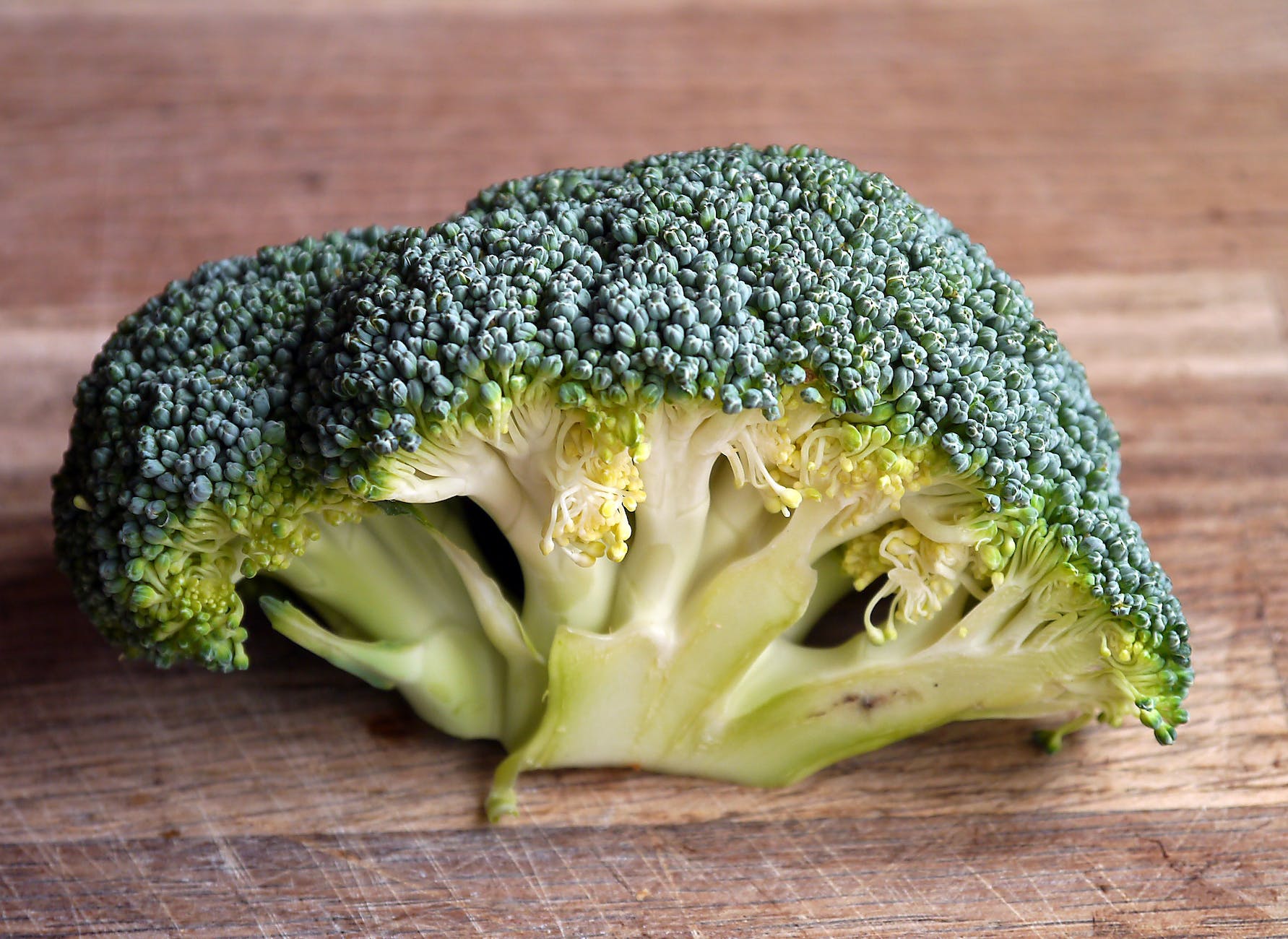
Hello, fellow nut enthusiasts! 🙋♀️🙋♂️ Today, we’re digging into the world of one of nature’s most potent little powerhouses – the Brazil nut. We’ve gathered your top questions and, right here, right now, we’re ready to spill the beans (or should we say, crack the nuts? 😉). From the ideal quantity to the potential health benefits and risks, let’s venture into this in-depth Q&A journey! 💫
🥜1️⃣ How many Brazil nuts should you eat a day?
Striking the balance is the name of the game. 🎯 Brazil nuts are tiny nutrient powerhouses and pack an impressive selenium punch, a nutrient essential for your health. Although it’s tempting to munch on handfuls, all you need is 2-4 Brazil nuts a day! This quantity provides your full recommended daily intake of selenium, along with a healthy dose of fiber, antioxidants, and heart-friendly fats. So, remember, you can go nuts about Brazil nuts, but don’t go overboard with them! 🌰🌈
🌞2️⃣ Is it OK to eat Brazil nuts every day?
Can you make Brazil nuts a daily snack? Absolutely! 🎉 These bite-sized delights are not only tasty but offer a host of nutrients, including selenium, which helps guard your body against oxidative damage and infections. Apart from selenium, they also contain magnesium and healthy fats, both known for promoting heart health. But before you rush to the pantry, remember our golden rule – moderation is key. Sticking to 2-4 Brazil nuts per day is a safe bet that lets you reap the health benefits without risking selenium overload. So, yes, feel free to make Brazil nuts a daily treat, but keep it balanced! 🥳🎯
💪3️⃣ Why should men eat Brazil nuts?
Listen up, gentlemen! 📣 Brazil nuts might be your new best friend. Why, you ask? They’re an excellent source of selenium, which studies suggest can boost testosterone levels, a crucial hormone for men’s health. In addition, the healthy fats found in Brazil nuts are great for overall well-being. So, gents, it might be time to add some Brazil nuts to your daily diet. But remember – moderation is key. A couple of nuts a day can go a long way! 🤠🌰
🕰️8️⃣ What is the best time to eat Brazil nuts?
Although Brazil nuts can be enjoyed any time of the day, some people prefer to eat them in the morning to kick start their day with a selenium boost. 🌞 This nutrient is known to support metabolism and protect the body from oxidative stress. So, whether you incorporate them into your breakfast, use them as a mid-morning snack, or sprinkle them over your lunchtime salad, you’ll still get the same nutrient punch. Just remember to stick to the daily recommendation of 2-4 nuts. ⏰💪
💊9️⃣ Do Brazil nuts increase testosterone?
Men, you might want to pay extra attention to this one. Brazil nuts contain selenium, which has been linked to testosterone levels in men. Testosterone, a critical male hormone, contributes to libido, bone mass, fat distribution, muscle size and strength, and the production of red blood cells and sperm. So, a few Brazil nuts a day could support your overall male health, but remember, moderation is key! 🙋♂️💖
🔟 Are Brazil nuts better than almonds?
Each nut variety has its unique nutritional profile and health benefits, making it difficult to declare a clear winner. 🏁 Almonds are a good source of vitamin E and magnesium, while Brazil nuts are rich in selenium. It’s all about what nutrients you’re looking for. If you’re after a selenium boost, Brazil nuts are the way to go. But if you want a vitamin E-rich snack, almonds could be a better choice. So, why not enjoy both, in moderation, of course? 🌰🥳
🌎 1️⃣1️⃣ Which country has most Brazil nuts?
Let’s take a trip to South America. 🗺️ Brazil nuts, as the name suggests, are native to Brazil. However, the largest exporter of Brazil nuts today is not Brazil, but Bolivia! Bolivia is responsible for more than 50% of the world’s Brazil nut production. So, next time you enjoy these nutritious nuts, remember, they might have traveled all the way from the lush Bolivian rainforests to reach your plate! 🇧🇴🌳
🧐 1️⃣2️⃣ What is the deficiency of selenium?
Selenium deficiency can cause several health issues. Selenium is essential for the proper functioning of the body. It aids in metabolism, supports the immune system, and acts as an antioxidant. Selenium deficiency symptoms include fatigue, mental fog, weakened immune system, and fertility issues. But remember, too much selenium can be harmful. Stick to the golden rule: moderation is key! Eating just 2-4 Brazil nuts daily can help maintain healthy selenium levels. 🌈💊
🤗 1️⃣3️⃣ Can we eat Brazil nuts directly?
Absolutely! Brazil nuts can be eaten as they are – no preparation needed. However, some people prefer to soak them to make them easier to digest. You can also add them to salads, desserts, or use them as a topping for your favorite dishes. Enjoy them your way, but remember, moderation is key. Stick to 2-4 nuts per day. 🥰🌰
😴1️⃣4️⃣ How many Brazil nuts for sleep?
Getting enough sleep is crucial for overall health and well-being. And guess what can potentially help you catch those much-needed Z’s? Yes, Brazil nuts! 🌛 These little wonders are rich in magnesium, a mineral known for its sleep-enhancing properties. About 2-3 Brazil nuts before bedtime could do the trick. However, keep in mind that a healthy sleep routine involves more than just food, so consider a combination of healthy habits for the best rest! 💤🌙
💔1️⃣5️⃣ Can Brazil nuts lower LDL?
Yes, indeed! The heart-healthy unsaturated fats in Brazil nuts can help lower levels of low-density lipoprotein (LDL) or “bad” cholesterol, reducing the risk of heart disease. But don’t go overboard—these nuts are high in calories and fat. Stick to a small handful, about 2-4 nuts a day, to reap the benefits without the extra calories. ❤️👍
🌙1️⃣6️⃣ Is it OK to eat Brazil nuts at night?
There’s no harm in enjoying Brazil nuts at night. As mentioned before, their high magnesium content can potentially aid in better sleep. Just remember to consume them in moderation—about 2-3 Brazil nuts before bed should do the trick. Whether as a midnight snack or a pre-bedtime ritual, Brazil nuts are ready to join your nighttime routine! 🌚⭐
🌿 1️⃣7️⃣ Do Brazil nuts cause gas?
Brazil nuts are rich in fiber which is essential for a healthy digestive system. However, like other high-fiber foods, they might cause gas or bloating in some people, especially if consumed in large amounts. This is because our bodies can’t digest fiber. Instead, it is broken down by bacteria in the gut, which can produce gas. To prevent this, try introducing Brazil nuts to your diet gradually and drink plenty of water. Remember, everyone’s body reacts differently to different types of food, so it’s all about finding a balance that suits you. 💨💦🌰
🌛 1️⃣8️⃣ Should we soak Brazil nuts before eating?
Soaking Brazil nuts before eating is not necessary, but it can have some benefits. Soaking can help remove phytic acid, a substance that can reduce your body’s ability to absorb certain nutrients. Additionally, soaking may make the nuts easier to digest for some people. To soak Brazil nuts, place them in a bowl of water and leave them for about eight hours or overnight, then drain and pat dry. But remember, whether you eat them straight from the bag or soak them first, moderation is key – stick to a serving of 2-4 Brazil nuts per day. 💧🕰️🌰
💪 1️⃣9️⃣ What are the 4 foods that boost testosterone?
Apart from Brazil nuts, there are several other foods known to support testosterone levels. These include:
- Tuna: This fish is rich in vitamin D, which has been linked to longer life and testosterone production. It’s also a heart-healthy, protein-rich food that’s low in calories.
- Egg yolks: Egg yolks are another rich source of vitamin D. While they have more fat and cholesterol than egg whites, they also have more nutrients.
- Fortified cereals: Certain breakfast cereals are fortified with vitamin D, not to mention other heart-healthy nutrients.
- Oysters: Known as a libido-boosting food for centuries, oysters are high in zinc, a mineral that helps with testosterone production and sperm health.
2️⃣0️⃣ How to increase testosterone to 1,000?
Now, this is a tricky one. The normal range for testosterone levels can vary significantly depending on the laboratory that analyzes the blood sample. Generally, the typical ranges are 270 to 1070 ng/dL with an average level of 679 ng/dL. 🧪
Attempting to increase testosterone to 1,000 may not be necessary or healthy for everyone. While Brazil nuts can potentially support testosterone levels due to their selenium content, you should consider a variety of lifestyle changes to naturally boost this hormone:
- Exercise and Lift Weights: Regular physical activity, especially resistance and high-intensity interval training, can help boost your testosterone levels. 🏋️♀️
- Eat Protein, Fat, and Carbs: Your diet plays a significant role in hormone production. Don’t skimp on balanced meals! 🥗
- Minimize Stress and Cortisol Levels: Long-term stress can mess with your hormone balance. Try stress-reducing activities like yoga or meditation. 🧘♂️
- Get Plenty of Restful, High-Quality Sleep: The importance of good sleep can’t be overstated—it impacts everything, including your hormones. 💤
However, remember it’s essential to consult with a healthcare provider before making any drastic changes to your diet or lifestyle, particularly if it involves hormone levels. Safety first! 👩⚕️👍
2️⃣1️⃣ Can I eat Brazil nuts with milk?
Sure, you can! Brazil nuts and milk can make a nutritious and delicious combination. Toss some Brazil nuts into a blender with your favorite milk (dairy or non-dairy alternatives like almond, soy, or oat milk), add a sweetener if you wish, and you’ve got yourself a tasty, nutrient-packed Brazil nut milkshake. It’s a different way to enjoy the benefits of Brazil nuts, but remember, moderation is key—stick to 2-4 Brazil nuts per serving. 🥛🥜🍹
2️⃣2️⃣ How much selenium is in an egg?
While Brazil nuts are indeed selenium superstars, they’re not the only food source of this important mineral. Let’s talk about eggs. 🥚 An average egg contains approximately 15 micrograms of selenium, making it a good source of this essential nutrient. Of course, this can vary depending on the diet of the hen who laid the egg. Either way, eggs and Brazil nuts can happily coexist in your selenium-conscious diet! 🐔🌰
2️⃣3️⃣ Can we soak Brazil nuts in water?
Absolutely! As we discussed earlier, soaking Brazil nuts can help reduce their phytic acid content and may make them easier to digest for some people. Just pop them in a bowl of water for about 8 hours or overnight, then drain and pat dry before eating. It’s an easy step that can make these already healthy nuts even more beneficial! 💧🌰👍
2️⃣4️⃣ What are the side effects of Brazil nuts?
Like any food, eating Brazil nuts can have potential side effects, especially when consumed in excess. Here are a few things to be aware of:
- Selenium Toxicity: Brazil nuts are so rich in selenium that eating too many can lead to selenium toxicity, which can cause symptoms like fatigue, hair loss, and nail problems. Stick to about 2-4 Brazil nuts per day to stay safe.
- Allergic Reactions: Some people may be allergic to Brazil nuts. Symptoms can range from mild (like itching and skin rashes) to severe (like difficulty breathing).
- Digestive Issues: As high-fiber foods, Brazil nuts may cause gas or bloating in some people, especially when consumed in large amounts.
2️⃣5️⃣ Is it OK to eat 4 Brazil nuts a day?
While Brazil nuts are bursting with benefits, they should be eaten in moderation due to their high selenium content. The recommended dietary allowance (RDA) for selenium is 55 micrograms for adults. Since one Brazil nut contains roughly 68-91 micrograms of selenium, eating 4 a day may exceed the RDA. Over time, this could lead to selenium toxicity, which can cause symptoms like gastrointestinal upset, hair loss, fatigue, and nerve damage. So, it’s best to stick to around 2-3 nuts per day to reap the benefits safely. 😊🌰👌
2️⃣6️⃣ Are Brazil nuts high in omega-3?
Brazil nuts are an excellent source of healthy fats, including both monounsaturated and polyunsaturated fats. However, they are not particularly high in omega-3 fatty acids. Foods like fatty fish (salmon, mackerel, sardines), flaxseeds, chia seeds, and walnuts are better sources of omega-3. So while Brazil nuts are super for selenium and magnificent for magnesium, they’re not the omega-3 kings of the nut world. 🐟🥜👑
2️⃣7️⃣ Who should not eat Brazil nuts?
While Brazil nuts are generally safe for most people to eat in moderation, there are a few exceptions:
- People with a nut allergy: Those allergic to nuts should obviously avoid Brazil nuts. Symptoms of a nut allergy can range from mild (hives, stomach cramps) to severe (anaphylaxis, a potentially life-threatening reaction).
- People with selenium toxicity: Given their high selenium content, those who have been diagnosed with selenium toxicity should avoid Brazil nuts.
- People on a low-fat or low-calorie diet: Brazil nuts are high in calories and fat, so those on specific diets may need to limit their intake.
2️⃣8️⃣ How long do Brazil nuts take to digest?
When it comes to digestion, Brazil nuts are like other nuts and can take a bit longer to digest compared to other foods. Due to their high fiber and fat content, they require more time in the digestive system for enzymes to break them down. On average, it takes about 2-3 hours for nuts to pass through the stomach and reach the small intestine for further digestion and nutrient absorption. So, enjoy Brazil nuts mindfully and savor their deliciousness! ⏳🌰😋
🌞 2️⃣9️⃣ What is the best time to eat Brazil nuts?
The beauty of Brazil nuts is that you can enjoy them any time of the day! Whether it’s as part of your breakfast, a midday snack, or a post-dinner treat, the choice is yours. There is no specific “best” time to eat Brazil nuts. Simply incorporate them into your day whenever it suits your preference and dietary routine. Remember, balance and moderation are key, so enjoy them as part of a varied and nutritious diet. 🕒🌰🍽️
🌍 3️⃣0️⃣ What is Brazil nuts called in India?
In India, Brazil nuts are commonly known as “Jungle Badam.” The name translates to “wild almond” in Hindi, referring to their almond-like shape and appearance. So, next time you’re in India or conversing with someone from the region, you can use the term “Jungle Badam” to refer to these delightful nuts! 🇮🇳🌰
3️⃣1️⃣ Are Brazil nuts good for joints?
Absolutely! Brazil nuts can be beneficial for joint health. They contain selenium, which has antioxidant properties that help reduce inflammation in the body. Inflammation is a major contributor to joint pain and stiffness. Additionally, the healthy fats found in Brazil nuts, such as omega-3 fatty acids, have anti-inflammatory effects that can further support joint health. So, munching on a few Brazil nuts as part of a balanced diet can be a nutty way to nurture your joints! 💪🌰🏋️♀️
💪 3️⃣2️⃣ Why should I eat 2 Brazil nuts a day?
Eating 2 Brazil nuts a day can provide you with your daily recommended intake of selenium. Selenium is a vital mineral that acts as an antioxidant, supporting your immune system, protecting against cell damage, and promoting overall well-being. Brazil nuts are incredibly rich in selenium, so just a couple of nuts can help you meet your selenium needs. However, it’s important to stick to this moderate amount, as excessive selenium intake can have adverse effects. So, two nuts a day keep the selenium levels in check! 🌰🌟
🌰 3️⃣3️⃣ Which nuts are best for joint pain?
When it comes to joint health, several nuts can lend a helping hand. Here are a few that stand out:
- Walnuts: Rich in omega-3 fatty acids, walnuts have anti-inflammatory properties that can benefit joint health.
- Almonds: Almonds are packed with vitamin E, which acts as an antioxidant and may help reduce inflammation.
- Pistachios: Pistachios contain antioxidants and anti-inflammatory compounds that can support joint health.
- Cashews: Cashews provide minerals like zinc and magnesium, which are important for bone health and joint function.
💪 3️⃣4️⃣ Why are Brazil nuts good for men?
Brazil nuts offer several benefits that make them particularly good for men’s health. Here’s why:
- Selenium: Brazil nuts are one of the richest food sources of selenium. This mineral is essential for the production of testosterone, a hormone that plays a key role in men’s reproductive health, muscle strength, bone density, and overall well-being.
- Heart-Healthy Fats: Brazil nuts are packed with heart-healthy monounsaturated and polyunsaturated fats, including omega-3 fatty acids. These fats support cardiovascular health, which is important for men’s overall well-being.
- Antioxidants: Brazil nuts contain antioxidants that help protect against cellular damage and promote a healthy immune system.
Including a few Brazil nuts in your daily diet can provide these beneficial nutrients and support men’s health. Just remember to enjoy them in moderation, as excessive consumption can lead to selenium toxicity.
🏋️♂️ 3️⃣5️⃣ Which nut is best for muscle growth?
When it comes to muscle growth, various nuts can contribute to the process due to their protein and nutrient content. Here are a few options:
- Almonds: Almonds are rich in protein, healthy fats, and vitamin E, which supports muscle recovery and growth.
- Peanuts: Peanuts are an excellent source of protein and provide a range of amino acids necessary for muscle repair and growth.
- Cashews: Cashews offer a good balance of protein, healthy fats, and minerals like magnesium, which aids in muscle function.
- Walnuts: Walnuts contain protein, omega-3 fatty acids, and antioxidants, which can support muscle repair and recovery.
🌰 3️⃣6️⃣ Are Brazil nuts bad for kidneys?
Brazil nuts, like other nuts, are generally not harmful to the kidneys when consumed in moderation. However, if you have kidney disease or are on a potassium-restricted diet, it’s important to be mindful of your intake. Brazil nuts are relatively high in potassium, so it’s best to consult with a healthcare professional or a registered dietitian who can provide personalized advice based on your specific kidney health needs. As with any dietary consideration, individual circumstances may vary, so it’s always best to seek professional guidance. 🌰💧👨⚕️
💡 3️⃣7️⃣ Why are too many Brazil nuts harmful?
While Brazil nuts offer numerous health benefits, consuming too many can lead to excessive selenium intake, which can be harmful. Selenium toxicity can cause symptoms such as nausea, diarrhea, hair loss, brittle nails, and neurological issues. To avoid this, it’s important to stick to the recommended daily intake of 2-4 Brazil nuts. Moderation is key to reaping the benefits of Brazil nuts without exceeding safe levels of selenium. 🚫🌰🙅♀️
⏲️ 3️⃣8️⃣ How long do Brazil nuts take to expire?
Brazil nuts have a relatively long shelf life if stored properly. When stored in an airtight container in a cool, dry place, they can last for several months, typically up to 6-12 months. However, it’s important to note that nuts can become rancid over time due to their high fat content. To ensure their freshness and quality, it’s recommended to check the expiration date on the package and consume them before that date. As with any food, using your senses to check for any signs of spoilage, such as an off smell or taste, is also important. Enjoy them while they’re fresh and flavorful! 🌰🗓️😋
🕵️♀️ 3️⃣9️⃣ How to crack open a Brazil nut?
Cracking open a Brazil nut can be a fun and rewarding experience. Here’s how you can do it:
- Take a Brazil nut in your hand and position it between your thumb and forefinger.
- Use a nutcracker or a sturdy pair of pliers to apply gentle pressure on the nut’s shell.
- Apply enough force to crack the shell, but be cautious not to crush the nut inside.
- Once cracked, carefully remove the shell to reveal the delicious Brazil nut within.
- Enjoy your freshly cracked Brazil nut as a tasty and nutritious snack!
Remember, cracking Brazil nuts can be challenging due to their hard shell. If you find it difficult, you can also look for pre-shelled Brazil nuts available in stores. Enjoy the nut-cracking adventure! 🌰💥👏
🌏 4️⃣0️⃣ What is the origin of Brazil nuts?
Brazil nuts are native to the Amazon rainforest in South America, primarily found in Brazil, Bolivia, Peru, Colombia, and Venezuela. These magnificent nuts come from large, towering Brazil nut trees (Bertholletia excelsa) that can reach heights of up to 160 feet (50 meters). The trees have a symbiotic relationship with orchid bees, which are essential for their pollination. Harvesting Brazil nuts involves collecting the large fruit pods from the forest floor, where they naturally fall when ripe. From the depths of the Amazon, Brazil nuts bring a taste of the rainforest to our plates! 🌳🌰🌍
That concludes our nutty adventure through the world of Brazil nuts! We hope we’ve satisfied your curiosity and provided valuable insights into these marvelous nuts. Keep exploring and enjoying the wonders of Brazil nuts in your culinary adventures. Stay nutty, my friends! 🥳🌰
Don’t forget, if you’re as nutty about nuts as we are, join our community over at https://www.facebook.com/groups/eatlo. There, you can share, learn, and chat all things nuts with fellow enthusiasts! 🥰💬
Blog Tags: Brazil Nuts, Nutrition, Healthy Eating, Selenium, Daily Consumption, Nut Lovers, Men’s Health, Testosterone, Antioxidants, Fiber, Heart Health














